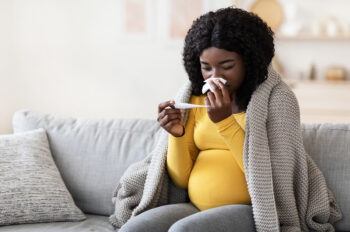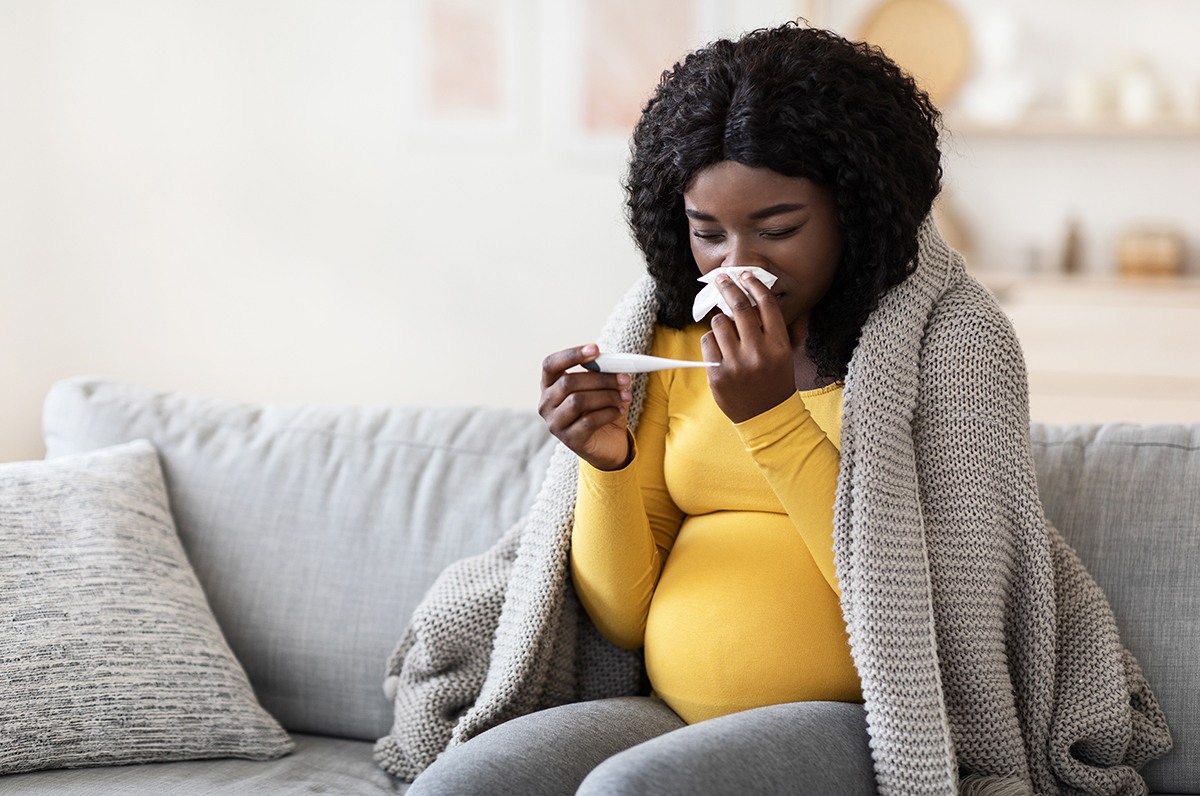
Air pollution, which is a globally environmental wellness concern, is dependable for one particular in 9 deaths with an once-a-year premature mortality of extra than 7 million.
Getty Pictures
For the duration of being pregnant, females are additional susceptible to extreme respiratory bacterial infections from a number of viruses, such as influenza A virus (IAV), respiratory syncytial virus (RSV) and extreme acute respiratory syndrome coronavirus (SARS-CoV-2). Moreover, pregnant girls are disproportionately influenced by influenza, ensuing in a a lot more than 10-fold improve in hospitalization hazard.
A new analyze led by Dr. Natalie Johnson, associate professor in the Texas A&M University University of General public Health’s Office of Environmental and Occupational Health, shows that publicity to ultrafine particles (UFPs) all through pregnancy boosts respiratory viral infection danger. The benefits of the study have been posted not long ago in Particle and Fibre Toxicology.
“We know that air pollution has an effect on the pulmonary immune method, making people today a lot more prone to viral infections,” Johnson said. “We also know expecting women are previously at enhanced chance for critical flu. Astonishingly, research have not interrogated the put together outcomes of being pregnant, air pollution and influenza. Our findings exhibit the need to additional analyze these interactions in get to protect against brief and potentially prolonged-term impacts on maternal wellness.”
In the study, Johnson and her co-authors issue out that there are several physiological attributes that explain maternal susceptibility to viral infection. Amongst all those are enhanced cardiac output and reduced tidal quantity — the sum of air that moves in or out of the lungs with every respiratory cycle — as nicely as immunological variations these types of as selective modulation of immune mobile subsets to safeguard the creating fetus.
The analysis staff also highlights that vaccination compliance all through being pregnant is generally under 50 p.c, inspite of vaccination from influenza being safe and sound and productive, main to improved hazard for producing respiratory an infection.
As a final result, air air pollution, which is a all over the world environmental overall health difficulty, is liable for just one in nine fatalities with an yearly premature mortality of much more than 7 million. A combination of gases and very small airborne particulate make any difference, which is categorized as UFPs, are significant to understand and discover, primarily to shield susceptible populations.
The investigate group says these conclusions assist upcoming clinical and regulatory interventions for preserving pregnant ladies and managing UFPs. According to the scientists, it is very important that expecting females in urban cities, exactly where influenza and UFPs are far more prevalent, are supplied vaccinations and preventive measures limiting UFP exposure to guard maternal overall health.
“Air air pollution is a pervasive environmental wellbeing situation,” Johnson explained. “Strategies to guard the most susceptible, like pregnant ladies, are of significant priority to decrease adverse wellness consequences.”
More authors involve Nicholas L. Drury, Texas A&M Division of Environmental and Occupational Health and Texas A&M Division of Nutrition Toriq Mustapha, Texas A&M Office of Environmental and Occupational Well being Ross A. Shore, Texas A&M Division of Environmental and Occupational Overall health, Jiayun Zhao, Texas A&M Office of Chemistry Gus A. Wright, Texas A&M Department of Veterinary Pathobiology Aline Rodrigues Hoffmann, University of Florida Section of Comparative, Diagnostic, and Populace Medication Susanne U. Talcott, Texas A&M Department of Nutrition Annette Regan, University of San Francisco Faculty of Nursing and Well being Professions Robert M. Tighe, Duke University Section of Drugs and Renyi Zhang, Texas A&M Office of Chemistry and Texas A&M Section of Atmospheric Sciences.





More Stories
Pregnancy-related deaths more likely in states with abortion bans: research – The Hill
She Says Doctors Ignored Her Concerns About Her Pregnancy. For Many Black Women, It’s a Familiar Story. — ProPublica
Can Stress During Pregnancy Affect Postpartum Depression?